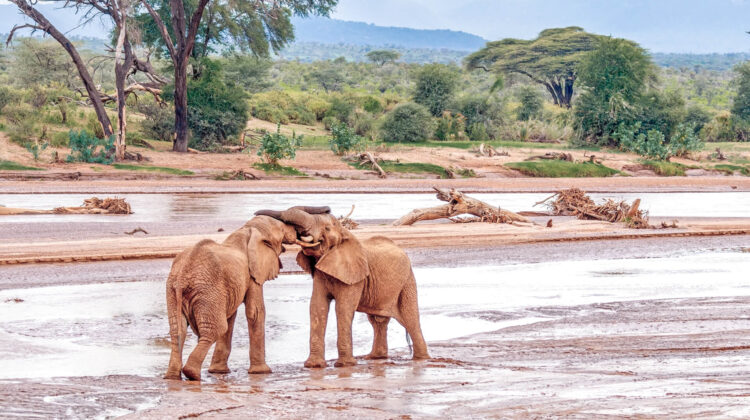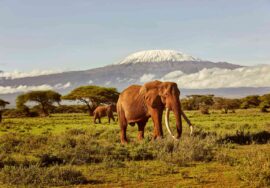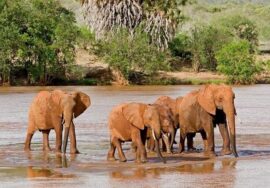
Samburu National Park
Samburu National Reserve
Location
Samburu National Reserve is located in northern Kenya along the Ewaso Ng’iro River, approximately 220 miles or a six and a half hour drive from Nairobi. Flights from Nairobi’s Wilson Airport take about 90 minutes to Buffalo Springs, Samburu Oryx Airstrip, or Kalama Airstrip.
Size
The reserve covers around 64 square miles.
History
Samburu National Reserve is famous as the setting for the book “Born Free,” chronicling Joy and George Adamson’s journey with Elsa the Lioness. Established as a wildlife protected area in 1948, it was handed to the African District of Samburu in 1963 for management. Today, it is administered by local Samburu communities and is one of Kenya’s premier safari destinations.
Entrance Fees & Permits
The entrance fee is USD 70 per adult and USD 40 per child under 12 years.
Hours of Operation
The gates are open daily from 6am to 6pm.
How to Get There
By Road
The six and a half hour drive from Nairobi follows the Thika and Nyeri Katerina highway. Five main gates include Archer’s Gate (most popular), West Gate, Kalama Gate, Uaso Bridge Gate, and Central Airstrip Gate.
By Air
Flights from Nairobi’s Wilson Airport take approximately 90 minutes, landing at Buffalo Springs, Samburu Oryx Airstrip, or Kalama Airstrip.
Best Time to Visit
Weather & Climate
Samburu lies in a partly arid and semi-arid climate, with temperatures averaging 65°F to 85°F year-round. The dry winter months (June–August) provide the best game viewing, while April brings heavy rains and November shorter rains.
Avoiding Crowds
Plan visits in winter (June–August) for peak wildlife viewing with fewer vehicles. Bird watchers may prefer January–February to focus on birdlife and newborn animals.
Value for Money
Accommodation ranges from budget camps to luxury lodges, tented or chalet-style, with rates from USD 200 to USD 1000 per person per night. Mid-range options average USD 700–800 per person, allowing for value-for-money safaris.
Wildlife
Popular Wildlife Sightings
Samburu is known for leopards and unique species like the reticulated giraffe, Somali ostrich, and beisa oryx. The reserve hosts four of the Big Five (no rhino) and over 450 bird species including vulturine guineafowl and Hunter’s sunbird.
The Terrain
The landscape features arid and semi-arid terrain, valleys with shrubs and acacia trees, and palm-lined Ewaso Nyiro Riverbanks providing a permanent water source.
Experiences
Game Drives
Morning and late afternoon game drives last around three hours, in open or enclosed 4×4 vehicles with pop-up roofs. Guides track predators, prey, and incredible birdlife across the reserve.
Guided Walking Safaris
Guided bush walks traverse arid landscapes, rock formations, and riverbanks. Walkers can observe elephants, buffalo, zebra, plains game, and birds. Walks are usually 2.5 hours, starting at sunrise or late afternoon, with optional packed breakfast or brunch stops.








